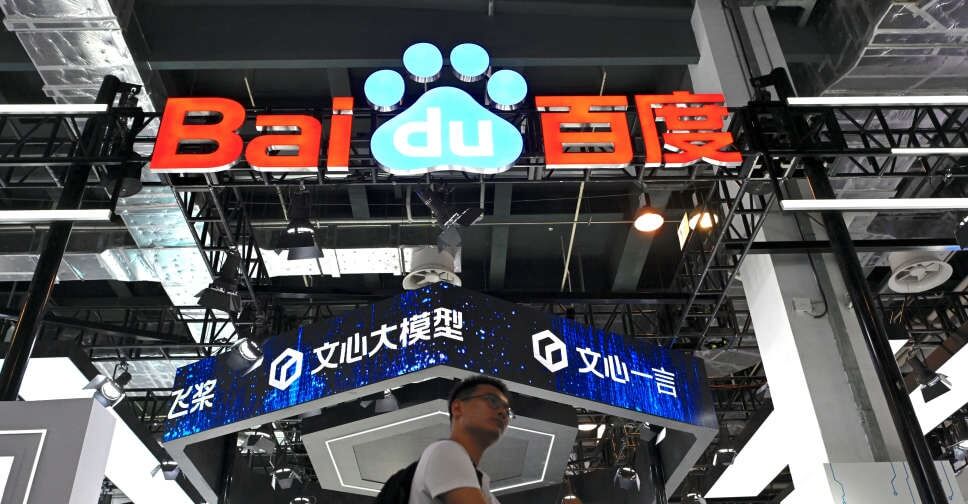On August 31, 2023, a significant development unfolded in the Chinese tech landscape, as five prominent technology firms, including industry leaders Baidu Inc and SenseTime Group, unveiled their artificial intelligence (AI) chatbots to the general public. This momentous move came after obtaining government approval, reflecting China’s commitment to expanding the use of AI products and asserting its competitiveness on the global stage, particularly in comparison to the United States.
Baidu, renowned as China’s foremost online search provider, proudly announced that its chatbot, Ernie Bot, bearing similarities to OpenAI’s ChatGPT, was now accessible to the public. SenseTime, a key player in AI and computer vision technologies, echoed this sentiment, revealing that its chatbot, SenseChat, was also fully operational and ready to serve users. Joining these tech giants in this ambitious endeavor were three AI startups: Baichuan Intelligent Technology, Zhipu AI, and MiniMax, all of which launched their own public chatbots on the same day.
The stock markets responded with enthusiasm to this development, as shares in Baidu and SenseTime soared in Hong Kong trading, with gains of 2.1% and 2.3%, respectively, even amidst a broader market downturn of 0.55%.
Notably, China differs from many other countries in its rigorous approach to regulating AI products. Companies are required to undergo security assessments and receive clearance before releasing AI products to the mass market. This approach demonstrates the government’s commitment to ensuring the safe and responsible development of AI technology. In recent times, the Chinese government has significantly accelerated its efforts to support companies engaged in AI development, recognizing the strategic importance of this technology in global competition, particularly in comparison with the United States.
Reports from Chinese media indicated that a total of 11 firms had received government approvals, including tech giants like TikTok owner ByteDance and Tencent Holdings. However, neither of these companies immediately responded to requests for comments regarding their AI plans.
Baidu’s CEO, Robin Li, explained that by making Ernie Bot widely accessible, Baidu aimed to “collect a massive amount of valuable real-world human feedback” to further enhance the chatbot’s capabilities. Additionally, Baidu announced its plans to release a series of “AI-native apps,” signaling a broader commitment to integrating AI into various aspects of daily life.
As of the report, it remained uncertain whether Alibaba had received approval for its AI initiatives. However, an Alibaba Cloud spokesperson disclosed that the company had completed the necessary filings for its AI model, Tongyi Qianwen, which was awaiting an official launch. The spokesperson also expressed anticipation for the regulators to release a list of approved companies in the coming week.
In the competitive landscape of China’s internet industry, being the first to market is often considered pivotal. Baidu’s Ernie Bot quickly climbed to the top of the free app category on Apple’s App Store in China following the announcement, underscoring the significance of early market entry.
Kai Wang, an analyst at Morningstar, observed, “I think the ones that got approved have an early mover advantage to be able to fine-tune their product faster than competitors.” This emphasizes the strategic value of securing government approval and entering the market promptly.
In the broader context of the AI industry, the report mentioned OpenAI, the creator of ChatGPT, which is backed by Microsoft. According to the tech-focused publication The Information, OpenAI was poised to generate more than $1 billion in revenue over the next 12 months, highlighting the substantial commercial potential of AI technologies.
This series of approvals had been highly anticipated since China introduced a set of interim rules aimed at regulating generative AI products for public use, effective from August 15. Previously, companies were limited to conducting small-scale public tests of AI products. However, with the new rules in place, companies have expanded their AI product offerings by introducing more features and engaging in extensive marketing efforts. Notably, prior government approval is no longer a requirement for products targeting businesses.
Shawn Yang, an analyst at Blue Lotus Capital Advisors, speculated that the government’s greenlight for AI products could prompt consolidation within the industry. As he remarked, “Many people were rushing into the large language model business, but the industry may soon consolidate. Only those with data and tech capability will be able to push forward.” This insight underscores the potential for evolving dynamics within the Chinese AI sector as companies vie for market dominance and technological leadership.
the launch of AI chatbots by Chinese tech firms to the public, following government approval, represents a significant milestone in China’s AI landscape. It not only reflects the nation’s commitment to fostering AI innovation but also positions Chinese companies to compete effectively in the global AI race, as they seek to harness valuable user feedback and advance the capabilities of their AI products. This development underscores the pivotal role that AI technology plays in shaping the future of various industries and economies worldwide.





